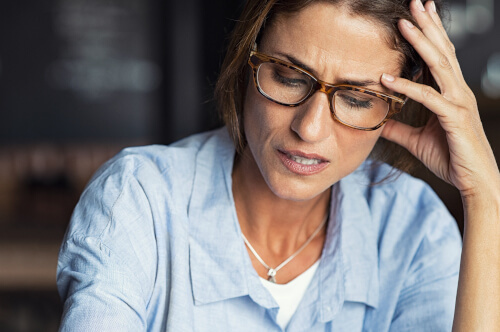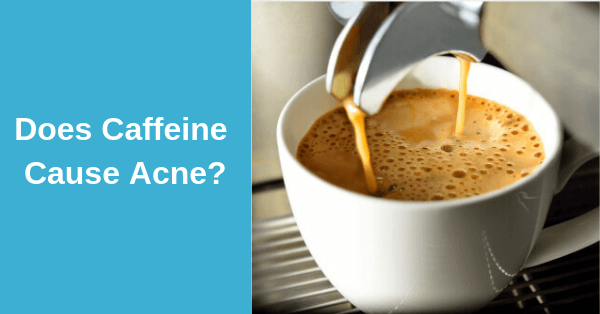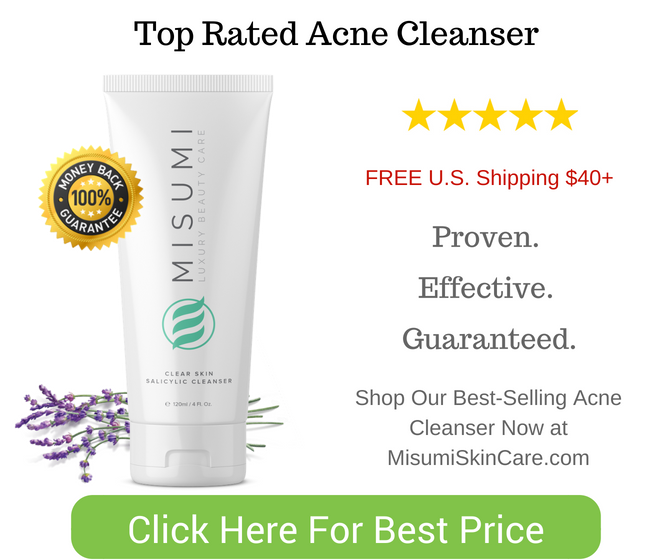Contents
Will drinking coffee give me acne?
Acne (Acne vulgaris) can be caused by many a thing, bad diet, poor exercise routine, lack of skincare regime, poor hygiene, bad luck, genetics you name it.

It has been questioned if there is a link between coffee and acne, especially caffeinated coffee.
However, there has been a growing concern around the effects of caffeine on acne (Acne vulgaris) and whether or not it is a cause of more acne, and if it makes acne worse. This will be discussed below.
It is generally regarded that caffeine and if you drink coffee does not, in fact, cause acne. However, it is also generally regarded that it definitely makes existing acne worse in some form or not, whether is increasing the intensity of the breakout, or causing redness and swelling of the skin. Your caffeine consumption can have an effect on it, so coffee and acne could have a link.
Does caffeine intake affect stress levels?
Caffeine makes the body’s stress levels elevate and aggravates it. There are significant links between coffee and raising stress levels and or anxiety in the brain and body. So the more coffee consumed the more stressed you can become.
Stress levels and anxiety are known to be agitated by caffeine. It is best to be avoided for people who suffer from anxiety disorders, people who have high blood pressure, or people living through particularly stressful situations.
Coffee doubles the body’s natural responses to stress. This process is called hyperadrenalism. Hyperadrenalism is when the body produces an extra amount of the stress hormone, which is highly aggravated by coffee.

Hormones such as cortisol (the stress hormone), are heightened and somewhat doubled if not more when the body intakes caffeine from drinking coffee.
Cortisol is a major factor and a major cause of acne breakouts as it can increase the amount of oil and sebum that your body produces in your sebaceous glands. This is because it raises oil levels on the surface of the skin, which gathers in the pores and seeps deep inside them. If left unwashed, it can cause pore blockage, and dirt builds up inside them, which naturally causes acne.
Does Stress affect my skin?
Not only does stress naturally have negative consequences for clear skin, but your body also is more prone to breakouts when it is stressed, and it is at least twice as worse with the addition of caffeine.
This can lead to all sorts of other complications besides from just acne such as difficulties sleeping and falling to sleep, headaches, dizziness, and even constipation. It can also affect your skin cells and how the skin produces sebum causing them to overproduce and can cause a clump of excess skin cells to get stuck inside a pore.
Cortisol triggers overt amounts of oil to be produced, Clogged pores will mean more acne issues and will make your oily skin to become unhealthy. Stress can also cause skin aging.
What is Insomnia?
Insomnia means that you will be tired, tiredness leads to the body not being able to function as it should, which can lead to complications such as acne breakouts and pimples on the face or other parts of the body. Insomnia dehydrates the skin which causes dead skin cells to build up over time and to clog pores in which causes acne.
Is it bad to drink a cup of coffee at night?
Caffeine should be avoided at night and in the evenings for a proper sleep pattern to continue and be maintained. Coffee also elevates the stress hormone cortisol which makes your brain crave comfort foods in which causes more sugar to go through your system and can make you stay awake.

If the body gets the right amount of rest and recovery time, the skin has a much better chance of rejuvenating and regenerating the collagen-like it needs to do to keep clean and blemish-free.
As an alternative, you could try green tea to cope with caffeine withdrawal.
Is adding Dairy Milk to coffee bad for my skin?
People often drink their coffee with the addition of milk and or sugar. Maybe they have their coffee with milk and sugar combined. Unless you are one of the people who like their coffee bare, then you are adding extra stress to your skin. Dairy Milk plays a part in that.

Milk and sugar are commonly known as two products that antagonize the skin and consequently can lead to causing severe acne. Especially skim milk is quite bad for causing severe acne.
Dairy can be a significant factor when it comes to breakouts of acne, as extensive research into the matter has proven.
This is because of the lactose element in most dairy products, especially milk. Lactose often causes breakouts and can agitate several different processes in the body. Many people opt for dairy-free milk in their coffee, such as soy or almond alternatives to avoid the after-effects of full-fat lactose milk.
Is Sugar also bad for my skin?
Sugar, as is common knowledge, is traditionally bad for maintaining healthy skin but also high sugar levels lead to lower insulin resistance, and the body’s ability to break sugar down becomes hindered over time which leads to diabetes, high blood pressure, obesity, and more. Energy drinks are also quite bad for causing severe acne. Sugar also causes blood sugar spikes in your immune system.

All of these things also contribute towards higher levels of aggressive acne and skin breakouts. Excess sugar in your bloodstream can also lead to Glycation which is a natural chemical reaction that happens when sugar levels are too high in the bloodstream. So yes eating lots of sugary foods and using lots of sugar in your coffee is bad. Especially caffeinated beverages.
Insulin resistance
Drinking coffee on a regular basis, so a few cups a day, can really hurt your body’s capability in terms of how it deals with carbohydrates.
When the body stops processing carbohydrates efficiently, insulin levels are consequently affected.
It can raise insulin levels in the body and therefore as a further consequence raises blood sugar levels. Carbohydrates have a high sugar content; this is why blood sugar levels are elevated as the insulin struggles to break down the carbohydrates that enter the body correctly.
Insulin is an issue for the body as it is well known to cause oil production in large quantities on the skin. If your body is making too much of it, then it will stop being effective, and your body will stop recognizing it as a viable hormone. This leads to complications such as diabetes, obesity, and blood sugar problems.
Bad Bacteria in your Stomach
Drinking too much coffee and therefore having too high of caffeine intake, can cause something called dysbiosis inside the body. What is dysbiosis? Well, it’s quite a simple concept for such a big and scientific word.
Dysbiosis is the process that describes a microbial imbalance inside the stomach and gut. Microbial just means all things organisms, so not that complicated right? Well, caffeine causes this in higher quantities because of the acidic content in every cup.

The acid can attack the good bacteria that exist naturally in the stomach, and that comes from eating and drinking other things such as good yogurts and water.
When the acid in the coffee acts in such a way, it stops the body in its tracks by producing normal vitamins and absorbing the normal nutrients it needs from food.
This, as you can imagine, has bigger repercussions and implications for your health. This can lead to a whole host of problems with regards to iron deficiencies, indigestion problems, other digestive problems, and poor effects for the rest of your organs, not to mention the skin and therefore consequential acne.
Moldy mycotoxins
A mycotoxin is a word used for anything toxic that comes off fungus – mold, spores, you name it. Though not on its own, coffee actually contains mycotoxins which occur when the coffee is being grown and stays after it has been harvested. The mold is from the crops and stays through the harvesting of the coffee beans.
Mould is quite commonplace in the climates in which coffee is grown, i.e. hot and moist and on a low altitude.
The climates where it is common are also the climates from which the cheaper coffee is supplied and grown as well and therefore used more widely in chain coffee stores such as Starbucks.
So if you’ve ever drunk a coffee from Starbucks, you’ve probably drunk its moldy spores as well.
Mycotoxins are really bad for acne, and that goes without saying. They also have a largely negative effect on the overall health of the body. However, don’t fret.
If the coffee is sourced and grown at a higher altitude, there is a much lower risk level when it comes to lingering mycotoxins, and it is much safer though somewhat more expensive.
Well, the answer is yes it does, and no it doesn’t. Caffeine has not been proven to directly be a causing factor of acne and blemish breakouts on the face and other parts of the body.
However, it is not good for the body and especially less good if your intake of caffeine is anything over one cup a day. It affects your stress hormones which cause more oil to be produced, which means you become more prone to breakouts.

It plays havoc with your stomach bacteria balance, it plays havoc with your cortisol levels which leads to higher anxiety, higher oil production, and higher breakouts, it plays havoc with your sleep patterns which lead to the body not having enough recovery time.
Some types of coffee actually contain mycotoxins, a kind of mold that comes from fungus through the cultivation process that also plays havoc with not just your skin but other bodily functions as well.
What if I need to drink coffee?
If you must drink coffee, don’t be fooled into thinking that decaf is better for you and therefore your skin, because it isn’t really.
Yes, it has less caffeine which is a good thing, but it still negatively messes with your internal bacteria and contains an even higher risk of containing mycotoxins residue from the growing and harvesting process.
Instead, try drinking coffee in much smaller quantities to start yourself off with. Caffeine withdrawal is a real and serious thing and shouldn’t be taken lightly. If you need advice regarding caffeine withdrawal and how to cope or deal with it, you can talk to your medical professional.
Alternatively, you could try to limit the amount of milk and sugar you take with your coffee as well as drinking smaller quantities, as they are agitating factors when it comes to breakouts for separate reasons.
If you can’t drink your coffee without milk, try a dairy alternative such as soy or almond milk and see if your skin knows any improvements with this subtle change.



